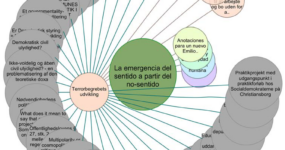Investor-turned-entrepreneurs Brij Bhushan and Anshoo Sharma have raised $3 million in Series A round of funding from Lightspeed Venture Partners for Magicpin, a hyper-local discovery app.
Magicpin was founded in August by Bhushan and Sharma, who left their jobs at venture capital firms Nexus Venture Partners and Lightspeed Venture Partners.
“While looking at the market from an investing lens, it was quite clear that India is entering a phase where everyone would be connected through their smartphones. A trip to China in late 2014 was an eye opener for the kind of businesses and value such an environment would create. There is an opportunity window today in India for creating a massively valuable business that leverages data, technology and people networks around offline transactions, and we did not want to miss out on that,”said Sharma, co-founder and chief executive at Magicpin.
Magicpin, run by Samast Technologies Pvt. Ltd, aims to create a social platform to help people connect and discover shops, restaurants or other services around them. The app offers Instagram-like features where users can take pictures and selfies to avail of offers and discounts at neighbourhood stores.
Magicpin is modelled around China’s Meituan-Dianping, which in January raised $3.3 billion at a valuation of $18 billion, according to a Techcrunch article.
Gurgaon-based Magicpin is currently available in National Capital Region, Jaipur and Bengaluru. It has over 30,000 merchants listed on its platform and has over 150,000 users. Magicpin, which sees 5,000 transactions a day, is aiming to triple its transactions within the next six months. It also plans to expand to four new cities including Mumbai, Chennai, Pune and Hyderabad by June-July.
The company claims to drive close to $1 million worth of transactions for its merchants. Magicpin targets the age group of 16-32 years and sees 40% of its users come back on the mobile app every fortnight.
It currently has over 100,000 downloads and is largely dominated by women users, according to Bhushan.
“Offline retail in India would add up to a trillion dollars of annual turnover by 2020. This is a market that is 100x the size of e-commerce in India and constitutes of millions of merchants providing services like restaurants, fashion, spa, beauty, yoga, sports, gym, etc. This market is ripe to get disrupted as internet users in India move towards 600 million by 2018,” said Sharma.
Magicpin, which largely makes money by charging a commission from its merchants and a recurring listing fee, also plans to use data analytics as a tool to make money in the future.
Similar businesses in the US and China – Nextdoor, Foursquare and Meituan-Dianping, count on consumer data as an important source of revenues.
“Our business model is funded primarily by merchants and the brands. Merchants and brands use the platform to engage or provide personalized offers to their customers. They pay a recurring platform fees and a per transaction charge for the business that magicpin drives to them,” said Bhushan.
Magicpin was incubated by Lightspeed, a $3 billion fund that has investments in consumer internet firms such as Oyo Rooms, Limeroad and Craftsvilla in India and global investments such as Snapchat, Nest, Grubhub, Living Social and Playdom.
“The two key drivers of the investment are the quality of the founders and the large opportunity in the hyper-local space. The firm has extensive learnings and insights from its early investments in LivingSocial (US) and DianPing (China) that inform our view of the correct strategy in India,” said Bejul Somaia, managing director at Lightspeed Ventures.
[“source-Livemint”]




























